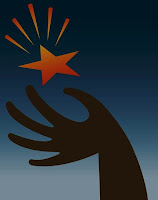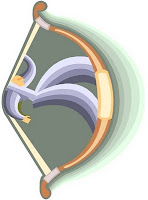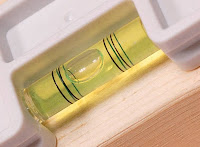As I look around the area I live, it is clear that the harvest is complete. This is the week that we are grateful and celebrate our good fortune. As harp players, we have much to be thankful for – a gorgeous instrument that is held in trall by many and is gentle with us, the dedication to playing it, the talent to bring to it, and the desire to share the contents of our hearts through it. Enjoy the holiday (or its spirit if you are in a different country). Take a moment to reflect on kismet bringing you here!
Category: Caring for yourself
-
Happy Thanksgiving!
Happy Thanksgiving! -
This Build up is not waxy or dulling – but rather gets you where you want to go!
Last week I started talking about improving your condition so you could play better. But how do you do that, exactly?
No matter what you decide to do this summer, make sure you condition yourself. Be prepared to spend more concentrated time on your bench. Remember that workshops are hard work – you do a lot of concentrating. So spend some quality time taxing your brain before you go – you want to be ready to take in more. This is not the time to start trying to sight read Faure’s collected works to perform – but you could spend a little more brain time as you get ready to go. Learn some easy pieces by ear, read something new (not to performance, just practice your reading).
You’re going to be physically tired – you’re going to be working hard. And you’ll be spending your time doing things you don’t normally get to do – sitting at your harp! To have the stamina to spend that time on your bench, you should work up to it! Be sure your fingers, arms, shoulders, back and tush are ready for the demands you’re about to place on them. Spend more time at your harp in preparation. Be diligent about those exercises – get out your favorite book. I am currently switching back and forth between Grossi and Friou – use what works for you.
And don’t forget to stretch. You’re doing a lot of hard work to prepare. Stretching will help keep you limber and flexible and stronger – more able to enjoy the workshop time. Be physically and mentally ready for your workshop – don’t let little nagging bits of unpreparedness ruin your summer workshop. Be prepared so you can soak up loads of learning. You may not be ready yet, but if you start now you’ll be ready to have a great workshop experience!
-
The Holidays are coming – are you ready?
It’s that time of year – the Holidays! Lots of music to dust off to play for all of December, new tunes to try to get in shape to play in the venues we have booked (be they paying or family), as well as keeping up our “real” repertoire(s).
If like many of us, you are playing for your own enjoyment, playing to put presents under the tree, playing at churches, corporate parties, holiday events, and all your regular gigs, its going to hit you eventually…you are doing a lot!
it is really important to take good care of yourself at this time of year – we are all stressed up with somewhere to go – and the strain of adding to our usual busy routines can start to show – developing cracks in our usually pristine veneers…
Practice – be sure that you are getting enough practice but that you don’t ramp up from a tepid 15 minute a day run through to a sold 2 hour practice too quickly.
Stretch – add stretching your hands, arms, neck and back to your daily schedule. I don’t know about you, but “reading neck” is my biggest problem about this time of year. Since I usually don’t spend a lot of time glued to a music stand, this period of seasonal (read, I’m not bothering to memorize it) music is killing me! I don’t normally have my head turned in that direction for about 10 months of the year…so I really feel it now!
Rest – allow yourself enough time to prepare (corollary – know yourself and how long you will need to prepare for season – and give yourself that time so you can be ready) and build enough rest time into the schedule. This is both physical rest (I am certain you’re getting your 9 hours every night – right?) and mental (don’t think you will actually be able to learn 50 performance ready Christmas tunes in a week).
Enjoy – no matter your level of harp performance, you have a life beyond your harp (you do, don’t you?) so be sure to enjoy all the aspects of your life – use your creative outlets, enjoy the holiday season, have a cookie.
Remember that taking care of you is the best gift you can give yourself and your loved ones – it will make you a better person and a better harper.
-
Practicing can be a pain in the…
Many of us play the harp (or any instrument for that matter) for the pleasure it brings us, the joy we can share, and for the relaxation it affords us, especially in tense times.
And because so many of us play for fun, we often play only in fits and starts, sitting down for the two minutes we’re waiting for the microwave to beep or the few moments between putting the last load into the washer but before the previous load finishes in the drier. They are stolen moments.
And unfortunately, because they are stolen moments, we are sloppy with them – we plop on the bench, grab the harp, and blast through whatever piece of music comes to mind. We don’t prepare, we don’t breathe,and we don’t assure our posture is good, our backs straight, our heads up, lengthened through the spine, relaxed but composed. We’re too busy trying to bang through the tune! We don’t have time for all that posture stuff.
Well, we need to make time for that. Improper sitting, poor posture, slumped spines, feet not on the floor, craned necks, tense hands contribute to two potential outcomes – one hurts us in the short term (“gink” your back because you sat twisted?) and the other hurts us in the long term (if you always practice that way, you will have practiced yourself into a habit which you will have to work hard to reverse). And we don’t want practicing or playing to hurt our backs or to become a pain in the neck (or lower!).
And when it comes to posture, you must be vigilant. You don’t want to lose the bubble on how you sit, either at the harp or at your desk, the dinner table, or while schlumped on your couch watching television. Be mindful of your posture and know how much core strength you actually possess (or should that be corps strength?).
Many of us, especially those that are no longer adolescents, have much less core strength than we think we do. It will help your playing if you strengthen that core by getting some exercise. Strengthening your core helps you protect your back from everyday chores including lifting, twisting, and bending. It will also help you sit better and for longer when you play. Look at those harp players you admire – they have phenomenal posture. Why? First, they have practiced it, and second, they spend so much time on that bench that they must have the posture needed to maintain sitting and playing for so long.
You don’t have to become a pilates instructor or an exercise fanatic to achieve these gains. Just work some of the basic abdominal exercises we have all learned over the years into your day. You will feel better, be able to hold yourself up to play longer, and have better posture while you are playing (even if you plop down to play). You will be being kind to your back as well. What’s not to lose – the crunch is on.*
*All material provided within this blog is for informational and educational purposes only, and in no way is any of the content on this website to be construed as medical advice or instruction. No action should be taken solely on the contents of this blog. This is not medical advice, nor is it meant to replace the advice of your medical care provider. Exercise at your own risk, learn appropriate exercise technique from a professional, and use good judgement when exercising.
-
Drink it in!
I’ve talked about how everything impacts your harping. How we need to be open to all the things that help us become better harp players, more suited to the physical, mental, and emotional aspects of being harpers. So, here’s another in the physical column. And I know you’ve heard it before: drink your water!

But why do you need to stay hydrated to improve your harp playing? Well, the Mayo clinic tells us that the body is about 60% water, and we lose water through a number of bodily functions and not just the obvious one – you also lose water through breathing and sweating. So, it is essential to help replenish the water you’ve lost through going about your day.
But also, dehydration affects your brain. While severe dehydration may result in confusion or lethargy, milder dehydration can leave you with headaches, moodiness, tiredness and confusion. None of these will help you learn, practice or perform well at your harp or frankly, anywhere.
So, be certain, especially before you practice or perform, the stay hydrated – drink you water, it’s the easiest way to get water into your system!
-
Fortune Cookie
I’m not a huge fan of Chinese take away – that I am certain has nothing to do with anything actually Chinese. But on occasion I can’t avoid it. The best part is always the fortune cookie.
I skip eating the cookie – I can’t wait to break into it to get my fortune (as well as those lottery numbers and a new vocabulary word that I’ll never be able to pronounce correctly). The fortune is full of possibilities. One of the great things about fortune cookies – they only hold truths. We can laugh about it, make jokes about it, but does anyone ever read their fortune and remain completely unaffected?
My last fortune cookie said, “to have a friend, be a friend”. To assure that you have friends, you have to be a friend to others. Holding on to your gifts rather than giving them away diminishes those gifts. It also doesn’t allow you to be as open to the gifts that others share.
It got me thinking about how sometimes we hoard our music. We are so self critical and many people allow that self criticism to censor their performance – they won’t play for others. They are focused on their lack of perfection rather than on their depth of accomplishment.
Don’t get me wrong, it does take an effort to put yourself out there and share with others. It does require that you prepare – yourself, your music. You do have to swallow down the flipflops in your stomach.
But it is so worth it – you get that high from getting out there, they get the beauty of the music, you both enjoy participating in being together – what’s not to like.
So when you are sitting at your harp telling yourself that you’re not good enough – ask the question – good enough for what? Of course you’re good enough – you’re good enough to share your gifts with your friends. And in return, they’ll share their gifts – of joy, laughter, good times – with you!
-
Warming up
While it is full on January where I live, and (to paraphrase the song):

the weather outside may be frightful,
at my harp, it’s so delightful,
and since I’ve no place to go,
glissando, glissando, glissando!But seriously, no matter the weather, it is essential that you make sure you take care of your hands. They are central to our craft! We talked about hand health earlier, but it is that important, so we’ll talk about it again
I suggest a two pronged approach: On the one hand (get it?) Life behind your harp and on the other hand, Life in general.
In the Life Behind your Harp:
- Be sure to warm up before you play
- Scales and other small exercises are excellent for this
- Don’t play forcefully as soon as you sit down
- “ease” into your practice
- Perform specific exercises to warm up such as making fists, tapping your palm with each of its associated fingers, stretching your fingers as far away from your palm and each other as possible
- Be very mindful of your hand position
- Are you making “clam hands” or “relaxed fists” (or whatever you were taught) – have you fully relaxed your hands with each note?
- Are your arms and shoulders relaxed?
- Are you sitting up and breathing (yes, these all impact your hands!)
- Work your way up to working hard
- Start with simpler pieces
- Work on learning or difficult passages only when you have warmed up
- When you are finished practicing
- Do a “cool down” – play gently, slowly
- Stretch – your hands, your arms, your shoulders, your chest
In the Life in General:
- Stay warm:
- Wear gloves when it’s cold (I do this, especially before performing)
- Wear gloves for common household tasks (dishwashing, gardening, etc)
- Wear a sweater when its chilly (many people carry tension, including the stress of being chilled, in their hands)
- Be careful of your hands:
- Be careful of your nails and fingertips. If you are a wire harp player you know to be careful of your nails – but all of us need to care for our nails. Nails protect your fingers from injury but it is also very difficult to play if your nail breaks very low – it hurts!
- Be sure to wash your hands frequently (not only to avoid disease but also to help keep your strings clean)
- Be sure to use moisturizer to help keep your hands supple – it is very difficult to play if your skin is so dry (or chapped or cracked) that each movement hurts!
- Stay healthy – get some exercise (remember that while you’re hands are important, it is your core that holds you up to play and your aerobic capacity that supports all that breathing that I know you’re remembering to do!)
- Be careful in the kitchen – use sharp knives with proper technique
There are many ways we should care for ourselves, but these are just a few. Another time we’ll talk more about taking care of yourself while you’re not at your harp.
-
Harping Healthy for the Holidays
Well, as much as I would rather be in Scotland, playing some incredible music with friends established or newly minted, I’m home listening to the rain pelt the window whilst the wind howls. It is well and truly winter (even if it is only “meteorological winter” and we haven’t yet reached the solstice).
As we move toward the “Bleak Midwinter” it is natural that we’ll be playing more: people to the house will want to hear you, holiday gigs are piling up (this is my wish for each of you who are gigging), or your just practicing more because your inside more, staying cozy.
If you are playing more (practicing, preparing, or simply playing) it is essential that you care for your hands. On the outside, be sure to keep your skin nourished with an appropriate lotion or balm. Caring for your skin not only feels better but also helps keep you healthy. You’ll feel better because you prevent chapping or drying, Skin breaks or cracks are fractures in your largest organ and leave you open to infection.
It is equally essential that you care for the inside of your hands. Be certain to warm up each time you play. A few gentle scales and a go at your favorite exercises for just a few moments (2 – 5 minutes) will gently warm the small muscles of your hands. Just as you wouldn’t go out and run five miles without training or warming up, you shouldn’t sit down and play without preparing.
Avoid injury now and in the future by caring for your hands daily.








